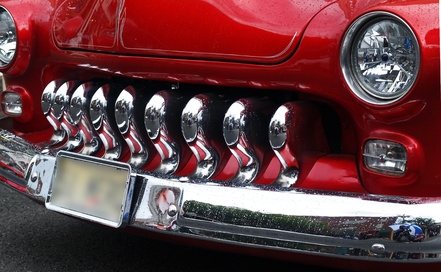
Big Labor argues that unions provide higher wages for the middle class, while critics say that unions are responsible for the collapse of domestic industries, including the auto industry. Unions may achieve benefits for their members, although they harm the overall economy, according to The Heritage Foundation. The result of unions demanding higher wages often results in companies passing those costs onto consumers, as is what happened with automobile prices in the United States, and that often leads to companies going out of business.
The Big Three automakers---General Motors, Ford and Chrysler---turned to Washington in 2008 for emergency assistance. Ford was able to make it, but General Motors and Chrysler filed for bankruptcy, even after receiving billions of dollars in bailout money. Now, the government owns 61 percent of General Motors. Chrysler was taken over by Fiat, and its largest shareholder is the United Auto Workers (UAW) union. High gas prices contributed to Big Three's troubles. GM, in particular, was hurt because pickups and SUVs were their mainstays. Unions were another reason. The high salaries of union members and expensive health care and pension plans priced American car makers into a corner, according to The New York Times.
Before Detroit's collapse, the UAW routinely went on strike demanding extremely high wages for union workers. Just before the collapse, union autoworkers were making $70 an hour in wages and benefits, according to The Heritage Foundation. Health benefits the union demanded for retirees and active workers added $1,200 to every GM vehicle made in 2007.
In 1984, the UAW negotiated a program called "Jobs Banks," which paid laid off autoworkers $31 an hour. Programs like these do not do companies any good, according to bankruptcy law expert and George Mason University Professor, Todd Zywicki. Even during bankruptcy proceedings, UAW President Ron Gettlefinger wanted to keep this entitlement program. At jobs banks' height, in 2006, almost 15,000 workers were being paid to do nothing, according to the New York Times.
Because UAW members earn high wages and benefits, every person who buys an American car pays more for it. This priced American cars out of the market and allowed foreign car makers to gain an advantage. By 2008, Toyota surpassed GM as being the world's largest automaker.
Non-union workers who work for Toyota and Honda, for example, produce high quality cars at lower prices than what Detroit was offering. After the automaker crisis, the UAW agreed to concessions to eliminate the gap between union and non-union workers, according to The Heritage Foundation.